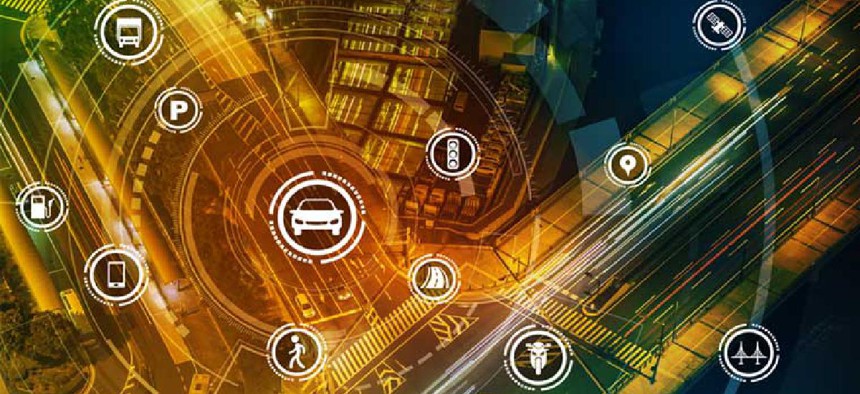Driving a more intelligent, integrated travel experience

Sharing data across systems or even stakeholders is challenging, but it can lead to better travel experiences for Americans, increase the efficiency of transportation and cut down on unnecessary congestion, pollution and expenses.
As the nation recovers from the global pandemic, there’s a greater need than ever to empower the digital transformation of transportation networks. That means cultivating intelligent systems that put data to work. Every connected intersection, road, bridge and toll booth creates data every second. Until now, those systems have existed in organizational silos. Sharing data across systems or even stakeholders is challenging, but it can lead to better travel experiences for Americans, increase the efficiency of transportation and cut down on unnecessary congestion, pollution and expenses.
The federal government is now poised to make large investments in transportation. President Joe Biden seems to agree that there is no better time than now to make informed, data-driven decisions to build smart, resilient transportation infrastructure.
This investment in infrastructure is commendable, but the money must go to the right places to drive effective change. Yes, repairing rails and removing high-emission buses from the roads is necessary, but the nation must move toward a more integrated travel experience:
Fix disparate systems. To deliver an efficient travel experience for passengers, cities must first connect their currently disparate digital systems. They should work toward building a single digital mobility platform for fare collection, tolling, traffic management and more to establish a common operating picture for shared coordination and control for multimodal transit across the network.
This means sharing real-time information with drivers, travelers and city managers that allow them to make informed decisions. For instance, a disruption on the road has implications for the entire transportation network from freight deliveries to public transit, but there is rarely a common operating picture that easily allows for planners, operators and different agencies across transit, roads, cities and regions to share this knowledge and plan their routes accordingly. The disparate systems can be connected with advanced technology -- which, by the way, is already in use in many major cities -- but the federal government must help push those initiatives forward.
Congestion and connectivity. Congestion in cities and metro areas is also a huge issue. The infrastructure plan should create a new program to help municipal governments use intelligent transportation systems, innovation and operational data-driven techniques to reduce congestion and create new sustainable revenue streams tied to congestion management.
Equitable pricing strategies. Transportation funding should involve policy decisions that account for the where, when and how Americans travel. A multi-state pilot program should charge users for urban miles differently than for rural miles and incentivize off-peak travel and high-occupancy vehicles.
Mobility as a service. After 18 months COVID-driven disruption, there is a unique opportunity to improve systems and optimize networks through enhanced use of data. MaaS solutions -- which combine public and private transportation services for holistic, optimal and people-centered travel options -- can address all of the aforementioned transit challenges. MaaS uses data to enable improved environmental, congestion and equity management and provide more inclusive payment options, improved systems and optimized networks.
For instance, if air quality sensors integrated into an intelligent MaaS platform detected elevated pollution levels, the systems could nudge drivers to take public transit instead and reward them with a free ticket for doing so. If there's an accident that will disrupt a bus route, users can be encouraged onto alternate modes, and drivers potentially impacted by the event can be intelligently rerouted to ensure that only a limited number of drivers are being diverted onto residential streets, for example.
Transportation is very personal for Biden. He rode Amtrak every single day for 36 years back and forth from Delaware to Washington, D.C., earning the nickname “Amtrak Joe.” For the past several years, America’s cities have experienced record-breaking congestion, travelers are expressing more concerns over discrepancies in fares, rural communities are still lacking connectivity and public transportation use has been on a steady decline.
Biden’s commitment to transportation is a positive for our country, and his advocacy comes at a time we so desperately need the change.





